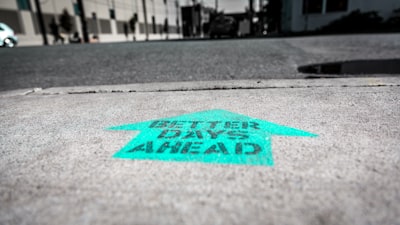Dissecting Dehydration and Vertigo
Feeling a little woozy? It could be dehydration-induced vertigo! We know, it's a dizzying concept. Dehydration is not just about feeling thirsty; it can have serious repercussions on your body and mind. In today's hot hydration blog, we take a closer look at the causes and symptoms of dehydration and how it impacts your overall functioning when it comes to getting dizzy, woozy or just plain confused. But wait, there's more! We also delve into the world of vertigo, the spinning sensation that can throw you off balance. Together, we explore the scientific connection between dehydration and vertigo, and how increasing hydration can reduce those pesky symptoms. So grab a glass of water (or our favorite flavored IV drink of choice) and let's dive in!
Understanding Dehydration: Its Causes and Symptoms
When it comes to dehydration, there are a few key causes and symptoms to be aware of. Dehydration can occur due to insufficient water intake or excessive sweating. So, if you're not drinking enough water or you find yourself sweating profusely, dehydration could be a likely culprit. Some common symptoms include a dry mouth and reduced urination. These indicators can serve as warning signs that your body is craving more fluids. It's important to pay attention to these cues and make sure you're getting enough water to keep your kidneys properly hydrated. Another sign of dehydration to watch out for is dark urine, which indicates that your urine has become more concentrated.
Hydro-Stats! Some Fun Facts
- A small 2004 study found that 1 in 10 study participants experienced headaches due to not being properly hydrated.
- However, according to the Mayo Clinic, drinking 8 glasses of water per day is a reasonable goal for most people
- While experiencing vertigo, sufferers may feel like they are tilting, swaying, or being pulled in one direction.
The Role of Hydration in Body Functioning
Proper hydration is not just about quenching your thirst; it plays a vital role in various aspects of body functioning. One of its key functions is maintaining blood pressure and circulation, ensuring that your body gets enough oxygen and nutrients to function properly. Additionally, hydration is important for digestion and preventing constipation. When you don't drink enough fluids, it can lead to difficulties in passing stools and discomfort in the colon. Therefore, staying well-hydrated is essential for these critical tasks and other normal functions. So, make sure to drink enough water or fluids throughout the day to keep your body functioning optimally!
Vertigo: A Brief Overview
Vertigo, a unique form of dizziness, is often associated with inner ear problems. This condition manifests through symptoms such as dizziness, lightheadedness, and nausea. While the primary focus of this guide is exploring the link between these two, it's important to provide a brief overview of what vertigo entails. By understanding the nature of vertigo and its associated symptoms, including common causes of dizziness, we can delve deeper into exploring the connection between dehydration and this dizzying ailment. Stay tuned as we uncover the scientific evidence supporting this intriguing link!
Common Symptoms of Vertigo
Oh what a dizzying experience! When it strikes, you may feel like the world around you is spinning, or even lose your balance. And let's not forget about the unpleasant companions of vertigo: nausea and vomiting. These symptoms can really throw you for a loop. But fear not, because understanding the common symptoms of vertigo is the first step towards finding relief. So if you've been experiencing these feelings of dizziness, along with the urge to empty your stomach, it's time to delve deeper into what to do about it.
Exploring the Connection between Dehydration and Vertigo
Thes two share an intriguing connection that cannot be ignored. The scientific evidence suggests a link between the two, with dehydration leading to low blood pressure, which can trigger vertigo or orthostatic hypotension. It's essential to stay hydrated by consuming enough fluids, especially water, to maintain normal bodily functions. Dehydration can be caused by various factors such as diarrhea, diuretics, and not drinking enough water or soda. By ensuring we meet our daily fluid intake, we can potentially reduce the risk of experiencing dizziness. So, remember to grab a glass of water or electrolyte drink and keep these meanies at bay!
Scientific Evidence Supporting the Link
Scientific research has demonstrated a clear connection between the two. Studies have indicated that when dehydration occurs, it can impact the inner ear and disrupt balance. Additionally, changes in blood volume caused by dehydration have been found to contribute to the onset of vertigo. This evidence highlights the importance of staying hydrated to maintain normal functions of the body, including the inner ear and overall balance. By ensuring you drink enough water or fluids throughout the day, you can help prevent these symptoms.
How to Combat Dehydration-Induced Vertigo?
To combat this ugly one-two combo, make sure to stay hydrated by drinking plenty of water throughout the day. Additionally, include electrolytes and potassium-rich foods in your diet to maintain balance. By prioritizing hydration and a nutrient-rich diet, you can help reduce the occurrence of vertigo symptoms.
Practical Tips to Stay Hydrated
Staying hydrated is essential for overall health and well-being. Here are some practical tips to help you stay hydrated throughout the day. Carry a water bottle with you wherever you go, so you always have enough water within reach. Sip water regularly, even if you're not feeling thirsty, as this helps maintain your body's fluid balance. Set reminders on your phone or watch to drink water, especially during hot weather or when engaging in physical activity. Remember, staying hydrated is key to keeping your body functioning properly and can help prevent feelings of dizziness and vertigo. So, grab your eight glasses of water and don't forget to have a drink of water when you're ill!
Can Increased Hydration Reduce Vertigo Symptoms?
Proper hydration may help alleviate symptoms of vertigo. It is important to consult a healthcare professional for personalized advice on maintaining hydration levels and managing these symptoms. It is important to keep our body hydrated as about 60% of our body mass is made up of water. The amount of water needed for hydration depends on the individual's body weight. To determine the daily water intake, one should drink around half to two-thirds of their weight (in pounds) in ounces. When we lose more than what we take in, our body is unable to carry out essential functions like breathing and digestion. This can cause our body to experience side effects like a specific type of dizziness, fatigue, and even vertigo. It is important to stay hydrated by drinking enough fluids throughout the day to avoid such health issues. Additionally, a great option to help spur on everyday hydration is [INSERT PRODUCT USP].
Frequently Asked Questions
Are there any specific fluids or electrolytes that can help with vertigo caused by dehydration?
To alleviate the onset of symptoms, drinking water is crucial. Additionally, fluids with electrolytes like sports drinks or coconut water can aid in hydration. Avoiding caffeine and alcohol can help prevent further dehydration and alleviate symptoms. If a dizzy-like state persists, consult a healthcare professional immediately!
When should you seek medical attention?
If you experience severe vertigo or dizziness, it is important to seek immediate medical attention. Other symptoms like confusion, fainting, or rapid heartbeat may indicate a more serious condition requiring emergency care. If your symptoms persist even after rehydration, it's advisable to consult a doctor for further evaluation and treatment. Prevention is key - stay hydrated and avoid extreme heat or physical activity in hot weather.
Are there any long-term effects?
Long-term effects of recurring dehydration-induced vertigo can include chronic dizziness, imbalance, cognitive impairment, and depression. Treatment involves increasing fluid intake and addressing underlying medical conditions. Seeking medical attention is important for those experiencing recurrent bouts of dehydration-induced vertigo.
Why does dehydration cause dizziness?
Dehydration can cause dizziness due to reduced blood volume and low blood pressure. Insufficient blood flow to the brain can result in feelings of lightheadedness and vertigo. Imbalances in electrolytes may also contribute to dizziness. Staying hydrated is essential for preventing dehydration-related dizziness.
Has anyone ever passed out from dehydration lightheadedness?
Yes, passing out from dehydration is possible. Dehydration can cause a drop in blood pressure and reduced oxygen flow to the brain, leading to fainting. Symptoms like dizziness, lightheadedness, confusion, and low blood sugar levels may precede fainting. Staying hydrated by drinking plenty of fluids is important, especially in hot weather or during physical activity.
Conclusion
So, the next time you experience dizziness, don't just brush it off. It could be a sign of dehydration-induced vertigo. Stay hydrated and take care of your body. Remember to drink plenty of water throughout the day and incorporate hydrating foods into your diet. If you're experiencing persistent vertigo symptoms, it's always a good idea to consult with a healthcare professional. They can help determine the underlying cause of your symptoms and provide appropriate treatment. Don't let dehydration bring you down - stay hydrated and keep those dizzy spells at bay! Cheers to good health and a balanced body!
DISCLAIMER: THIS WEBSITE DOES NOT PROVIDE MEDICAL/HEALTH ADVICE
The information, including but not limited to, text, graphics, images, and other material contained on this website are for informational purposes only. No material on this site is intended to be a substitute for professional medical advice, diagnosis or treatment. Always seek the advice of your physician or other qualified health care provider with any questions you may have regarding a medical condition or treatment and before undertaking a new health care regimen, and never disregard professional medical advice or delay in seeking it because of something you have read on this website.






